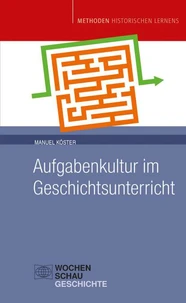This volume proposes a theory of history education in formal classroom settings. Specifically, it aims to outline how the particular setting of the classroom interacts with domain-specific processes of historical thinking. The theory rests on the notion that formal school education is a communicative and social system, while historical thinking occurs in the psychological system of a person's historical consciousness.
In the complex interaction of these systems, historical thinking, emotions, communication, media and language are of particular importance. Drawing upon educational theory as well as the theory of history, this theory of the history classroom provides a framework as well as a solid foundation for future empirical research, both for developing research questions as well as for interpreting findings.
This volume proposes a theory of history education in formal classroom settings. Specifically, it aims to outline how the particular setting of the classroom interacts with domain-specific processes of historical thinking. The theory rests on the notion that formal school education is a communicative and social system, while historical thinking occurs in the psychological system of a person's historical consciousness.
In the complex interaction of these systems, historical thinking, emotions, communication, media and language are of particular importance. Drawing upon educational theory as well as the theory of history, this theory of the history classroom provides a framework as well as a solid foundation for future empirical research, both for developing research questions as well as for interpreting findings.

 , qui est-ce ?
, qui est-ce ?